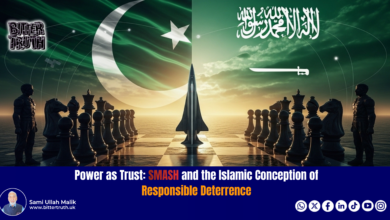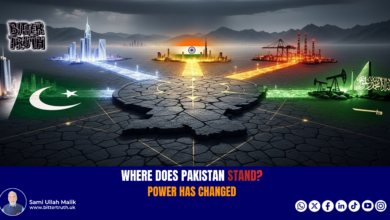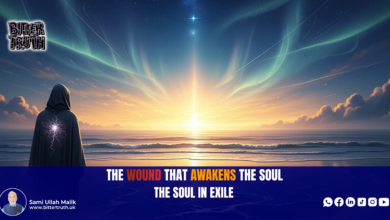Crisis of liberal democracy
“When religion abandons the infallibility of eternal realities, and descends and begins to interfere in worldly affairs, it causes the destruction of itself and everything else in the world.” (Ottoman politician, Mustafa Fazil Pasha, 1867)
On April 10, 2018, during his weekly address to the National Legislative Assembly (Parliament), there was a brief conversation between Turkey’s powerful President Tayyib Erdogan and his Education Minister Ismat Yilmaz, parts of which were mistakenly broadcast on television while the microphone was kept off. It was an interesting scene. In the middle of his speech, Erdoğan called Yilmaz to the stage (podium), and inquired about the “Report on Al-Hadi theology,” which his key political ally Daulat Baghçe Li had mentioned in one of his speeches just hours earlier. What was in the speech? When the minister, respectfully, tried to inform his president of the report’s findings, Erdogan was heard saying, “No, that can’t happen.”
The report, prepared a few weeks ago by a local branch of Turkey’s Ministry of Education, warned the Erdogan government of “the rapidly spreading al-Hadi theology among the younger generation”. According to the official information (report), al-Hadi theology was also discovered in the religious schools run by the government, even inside the (religious teacher) Imam Hatib, where the number of admissions to government incentives and government recruitment has skyrocketed during Erdogan’s regime, with a large number of students losing faith in Islam. According to the report’s findings, “Instead of adopting complete atheism, a large number of young people (who have lost faith) are opting for al-Hadi theology.” This means that despite the Erdogan government’s efforts to nurture a new “Pakbaaz/Nikoka Rinsal”, a significant section of Turkish youth are choosing to believe in an uncertain and obscure God, moving away from the Islamic faith.
In recent years, this social trend has also been observed by many other Turks, and at this time the matter has become common among the Turkish nation. Why is our younger generation turning to al-Hadi theology?” Hundreds of articles have been written in the (Turkish) print media about this question and dozens of dialogue meetings have been held on TV. In April 2018, Ali Erbash, director of religious affairs, at first completely denied reports about the promotion of al-Hadi theological faith and rejected the possibility that “someone in our nation (al-Hadi al-Ilahit) may be interested in such a misleading concept”. However, five months later, Erbash’s department “declared war” against al-Hadi al-Hilayat.
The question is, why is the epidemic of al-Hadi divinity spreading among the Turkish nation? What is the force behind this “epidemic of al-Hadi divinity” as attributed to it by turkey’s conservative religious circles?
Some supporting pundits have lost the answer to this question in the same thing that the epidemic is spreading on the basis of western conspiracy style. For example, according to the well-known Muslim preacher of the world of journalism (media), so-called Hatapoglu, “Western imperialism” injected the glorious Turkish nation with al-Hadi divinity, especially to weaken Turkey at a time when it is finally on the road to superiority and returning to its Islamic foundations. According to the high-level official religious leader Ali Erbash, the real force behind the young Turkish generation’s inclination towards al-Hadi theology is western “preachers”, who are supposedly trying to “attract young people to al-Hadi al-Hilayat in order to distance them from Islam and then later convert them to Christianity.”
For other Turks, however, the whole debate about al-Hadi divinity is based on a high degree of irony rather than a grand conspiracy: the Turkish nation, which often prides itself on 99% of its Muslim population. It expresses that there is an unprecedented distance from Islam at a time when the pioneers of Islam, including Islamists, including President Tayyip Erdogan and erdogan loyalists in the ruling Justice and Development Party, are politically more powerful than in the past. In fact, one can argue in this way that this is not an irony but an understandable chain of causes and causes:
The distance from Islam is increasing due to the presence of Islamists in power. Since the power of the Justice and Development Party has certainly proved to be oppressive, corrupt, and oppressive, some people who are disenchanted with the power and agenda of this party also seem to distance themselves from Islam.
Many in Turkey are making the same argument. One such person is “Tamil Qara Mullaoglu”, the leader of Hizb-e-Sadat. Like the Justice and Development Party, the party has its roots in Islamism, but has forged an alliance with the main secular opposition against the Erdogan regime. Karamalaoglu said in June 2019 that “fear and dictatorship reign in Turkey because of those who claim to represent religion, and that is why people are running away from Islam.” Karamalaoglu’s small party represents a minority of religious conservatives whose numbers are growing, fed up with the Erdogan government. There are also two new political parties in front of such Turkish voters, who are the main former leaders of the AKP, who have separated their paths from Erdogan: the “Future Party” under the leadership of former Prime Minister Ahmet Davutoglu and the “Salvation Movement” led by former economist Alibaba Jan.
The Us-based Turkish sociologist Mujahid Beliji is another critic, an active Muslim who calls the growing trend towards al-Hadi theology part of the “crisis of religiosity in Turkish Islamism”. For him, Mustafa Kemal’s secular system was finally defeated.
“Turkish religiosity has begun to breathe freely.” As a result, however, “Turkish religiosity has gone through a furnace of testing.” This religiosity politically despite success, it has failed spiritually. Moreover, the emergence of al-Hadi al-Hilayat is a consequence of this dramatic failure. He says that it should be emphasized that this process has little to do with Kemal secularism, the secularization project driven by the state-led secularization of Mustafa Kemal, the founding politician of modern Turkey. On the contrary, it is an organic secularization that is completely peaceful and is taking place not according to the will of the state but despite government policies. It is the result of a local and Turkish enlightenment and a post-Islamist spirit. Frustrated by their parents’ religious claims, which they consider to be pragmatic or hypocritical, the younger generation is opting for a tacit rejection of individual spirituality and tradition.”
Remember that what has happened in Turkey in the last decade is much less than what has happened in the Islamic Republic of Iran in the last four decades. There, too, the relatively high-ranking Islamic class of society, which had been walled off for nearly a century under secular rule, regained power with a revolutionary zeal. The Islamic Revolution in Iran, which began in 1979, was more obvious and bloodier. On the contrary, the revolution that gained momentum under the Justice and Development Party government in Turkey was relatively soft, gradual, democratic, and slightly peaceful. However, regarding both countries, it is fair to say that Islam implemented here emerged as a political force under a vengeance, but it only produced unexpected results.
That is why the Iranian Revolution of 1979 has succeeded in its original goal, the return of Iranian society to Islam, at least partially, but on the contrary, iran’s distance from Islam. Foreigners visiting Tehran often witness these consequences in daily life. Nicholas Pellam is one such tourist who works as the Middle East correspondent for The Economist newspaper. He was detained by Iranian intelligence for weeks in the summer of 2019, and then only after his release was, he able to report the following observations:
“Despite Iran’s religious reputation, Tehran is perhaps the capital of the Middle East that is the least religious. Newspapers are full of news stories of religious leaders who play the role of elders of the society in episodic dramas, but I have never seen them in the streets except on advertising billboards. Unlike many other Muslim countries, the call to prayer is almost unheard in Tehran. There is a vigorous campaign for the construction of new mosques, but instead of offering Friday prayers on Friday, the majority of people go to art galleries. Alcohol is prohibited, but alcohol is delivered more quickly at home than pizza.”
Within the safe walls of their homes, women often take off their heads coverings while they chat on the Internet. Dark cinema halls provide an opportunity to escape the eyes of the police enforcing moral discipline. Women in the cafe open their scarves out of dissatisfaction. Slightly more outspoken women risk ten years of imprisonment and go out in the streets without a hijab. Iran itself
Despite what a Malay government says, it seems disturbingly difficult to find religiosity, and genuine religious followers appear to be confined to the margins like a minority.”
All-round distancing from the act of righteousness is only one dimension of the failure of the Iranian revolution to rebuild Islam . Open deviation from Islam is a relatively more serious dimension, a highly offensive act that the Islamic Republic of Iran seeks to impose the death penalty. As I wrote elsewhere, Iran is a Muslim-majority country with the highest number of apostates. The majority of these former Muslims convert to Christianity, making the Iranian Church, the world’s fastest-growing church. According to one study, between 1960 and 2010, the number of people who converted from Islam to Christianity was about 100,000. Some of the converts secretly practice their new faith and some flee abroad to save their lives.
In addition, some Iranian apostates do not convert to Christianity, but instead become openly “atheists.” One such person is a woman named Azam Kamguyan, who is active in the field of religion and has barely escaped the hands of the Iranian revolution, moved abroad, and wrote many books, including “Atheism, Freedom from Religion and Human Happiness”. In another book, the woman wrote passionately about how Islam “destroyed the lives, dreams, hopes and aspirations of three successive generations” in Iran after 1979. Of course, the force behind all these factors was not Islam itself, but the Islamic Republic of Iran. It appears that in post-revolutionary Iran, it is easy to confuse the two.
Also know about the Arab world. Of course, this is a large and diverse landscape, consisting of 22 independent countries with different political histories and systems, as well as different sects, races, or tribes. However, it is possible to observe signs of a new wave of atheism in the Arab world. A research network called Arab Barometer, based in princeton and Michigan universities, has recently identified some such signs. In a poll conducted in six Arab countries (Algeria, Egypt, Tunisia, Jordan, Iraq and Libya), researchers from this research network discovered that “Arabs are becoming disillusioned with religious parties and leaders”. Thus, in a span of five years, the number of Iraqis who do not trust Islamic parties increased from 51 to 78 percent, while the proportion of “trust in Islamic parties” in the above-mentioned countries fell from 35 percent in 2013 to 20 percent in 2018. The number of people visiting the mosque also dropped by an average of more than 10 percent, with the number of Arabs calling themselves “non-religious” from 8 percent in 2013 to 13 percent in 2018.
Why is this happening? One answer is that recently there have been very dangerous incidents in the name of Islam in the Arab world. These incidents include sectarian civil wars in Syria, Iraq and Yemen, where warring factions have often participated in wars in the name of God in the most brutal manner. The millions of locals affected by these wars and those who have witnessed these situations both have gone through severe trauma and despair at the hands of religious politics, and a few have begun to raise deeper questions.
One of those who asked tough questions and lost his religion as a result is a 52-year-old Baghdad-based man named Abu Sami, who spoke to the US news agency NBC broadcasting company in April 2019 as a “hidden Iraqi atheist”. According to the report, he said, “We used to hear that Islam is a religion of peace, but ISIS treated monsters and barbarians, but worse than them” and with the help of this point, Abu Sami took a big position, “Is Islam a peace-loving religion? Not at all, and I don’t want to be a part of such a religion.”
Another Iraqi citizen, Islamist scholar and researcher Ghalib al-Shabandar, is also assessing the situation and is worried about it as a Muslim. He warns that a wave of atheism will spread in Iraq due to the reverse actions of Islamic parties. These are the actions that have forced people to abandon Islam and other religions.”
In addition to the brutality of ISIS and its affiliates, there is a similar trend in torn neighboring Syria as a result of the repression of the Bashar al-Assad regime: “an increase in apostasy among Syrian youth”. In the midst of this situation of violence and anarchy, Egyptian writer Sham al-Ali writes that “criticism of the religion (Islam) has gained momentum, and many Syrian youth, especially those in Europe, are abandoning their ancient religious way of life.” “Even at the collective level, Arab social media is replete with anti-religious critics and their (anti-religious) content, which fervently invites the re-establishment of religious mythology, or makes a mockery of religiosity,” he adds.
Sudan has also gone through a terrible experience of Islamism. The Muslim-majority African nation has lived
from 1989 to 2019 under the authoritarian regime of military president Omar al-Bashir. Mass protests in early 2019, or the “Sudanese Revolution,” ended al-Bashir’s rule, and exposed his shocking corruption: security forces recovered $350 million in cash from his residence alone. It was a public lesson that “a man who had always stirred up public sentiment by referring to his poverty-stricken early conditions” was only hiding “his greed and lust for the destruction of generations of people” and the people really learned this lesson. According to Abdul Wahab al-Afandi, a prominent Muslim scholar of Qatari origin, in post-revolutionary Sudan, “Islamism became a symbol of corruption, hypocrisy, tyranny and indecency.” Sudan, in a well-known sense, is the first country that is truly anti-Islamist.”
At this point, it may be useful to point out that we are talking about two interconnected but differentiated tendencies here. Islamophobia in Turkey, Iran, Sudan, and any other country may lead to islamophobia itself. It may lead to aversion, atheism or al-Hadi divinity or Christianity, or it may lead to a relatively low political belief. The latter cause certainly exists in all “post-Islamist” backgrounds, and in the end the above trend (the desire for a relatively low political belief) may gain more momentum than that of full-fledged Turkish Islam.
However, it is not easy to separate Islamism from the mainstream of Sunni or Shia Islam. Islamist parties, such as the Muslim Brotherhood in Egypt, may be further polluting religion with politics, and terrorist groups are adding a misleading element such as indiscriminate violence to this pollution. However, all these people (Islamist parties and terrorist groups) are becoming the pioneers of islam’s jurisprudential tradition i.e. the implementation of Sharia. The Shari’ah, whose central interpretations are based on commands whose acceptance is difficult for a modern perspective, such as the death penalty for apostates and blasphemers, the punishment for adultery, cutting off the hands of thieves, flogging in public for many sins, adherence to the rules of clothing on women, the rules of men over women, the superiority of Muslims over non-Muslims, and the overall concept of a narrow society based not only on religion. Rather, religion is the guardian of it.
Syrian-born public intellectual Mohammad Shahroor (d. 2019), whose reformist views of Islam have been widely discussed in the Arab world, has stressed the point that the problem is not only with Islamists (Islamists) who may have a specific political strategy for the implementation of Sharia, but also from the traditional mainstream scholars, i.e. scholars who are the ancient scholars of Sharia. They are the pioneers of interpretation. In one of his writings, inviting Muslims to “critical reasoning”, Shahroor wrote:
In the beginning, we thought that Islamism would be described as a departure from the solid academic tradition held by the scholars, and we expected the scholars to refute the Islamists (Islamists) as well as their aggressive feelings about political Islam and the muslimization of the whole world. We were very surprised when we heard legal interpretations that were primarily based on the fabricated claims of Islamists (Islamists), rather than any refutation statements from the respected scholars. We then learned that in fact, the scholars’ interpretations of apostasy, jihad, and war were not much different from those of the Islamists.”
Against this backdrop, islamophobia in contemporary times is not only due to Islamists (whether defined in political movements such as the Muslim Brotherhood, or terrorists on the extreme side), but also by conservative Sunni, Salafi, or Shia clerics who advocate religious views opposed to modern concepts such as freedom, equality, and human rights.
Take, for example, Saudi Arabia, which has recently fiercely opposed Islamists such as the Muslim Brotherhood but has also enforced the strictest form of Sharia. Saudi rulers consider “any preaching of atheistic thought or questioning the basic members of Islam” as a crime equivalent to terrorism. However, as journalists like Hakim Khatib observed, “many citizens of the Kingdom of Saudi Arabia are turning away from Islam” and some of them are writing their views clearly on the website. One reason for this is the compulsion of the strict interpretation of Islam imposed on them and the other reason is based on the possibility of tasting an alternative world. “Among other things, perhaps what is driving Saudis away from their religion is the strict and inhumane Islamic law enforced in Saudi Arabia, as well as easy access to information and mass transmission,” Khatib said.
It is difficult to estimate the actual proportion of distance from faith because there is no (regular) survey in this
regard and most people are careful to talk about this topic. However, the issue seems to be becoming a very serious issue not only in Saudi Arabia but also in other neighboring kingdoms, which is also being raised by the media that “the younger generation of our Persian Gulf societies is increasingly inclined to accept atheism”.
The Internet and especially social media play a key role (in promoting atheistic thought) as is often pointed out, but not merely as a proponent of an exported “atheistic idea” as conservatives generally believe, but as an independent space where people can express and share their internal anxieties (regarding religion), such as Abdullah Hamiduddin highlighted this in his book “Tweeted Hair Seas Saudi Islam in Transformation” published in 2019. The younger generation is increasingly deprived of faith, Hamiduddin shows through his personal experience, not just because of the questions he raises, but also because of “doubt and anxiety over the fabricated answers given by traditional religious scholars”. Similar stories can be heard from Morocco, where politics and laws are a bit lenient, but the conflict between traditional Islam and modern values still persists. Due to this conflict, one of the Turkish converts is a former Muslim named Muhammad, who interacted with a Western teacher. It appears that the self-righteousness of his Muslim companions led to his being atheist.
The main motivation for his Turkic religion was the observation of the fact among the People of Islam that they considered themselves to be “the sole masters of an ultimate truth”. He believed that “only Muslims deserve to enter Paradise”. “So what will happen to the rest of the world?” asked Muhammad himself. “The mother of one of my classmates was Jewish. I couldn’t think of this good woman going to hell.”
Other Moroccan atheists give similar reasons for their Turkic Islam. According to a former Muslim named Abdullah, the main reason for his Turkic religion is the Muslims who came in contact with him. There was homophobia among different groups. His question was, “If God created homosexuals, then why can He rebuke them for their sins?” ‘۔ For another former Muslim, “the dilemma caused by moral issues such as gender discrimination” proved to be the ultimate cause of his Turkic religion.
These are the reasons why Islamist and conservative scholars from North Africa to Southeast Asia are warning Muslims against modern values such as freedom of person and opinion or gender discrimination. In Malaysia, sermons were delivered in mosques against “liberalism and pluralism”, while its former prime minister denounced “human rightsism”. In Saudi Arabia, public schools under the Ministry of Education have a program that creates “immunity” against liberalism, secularism and “Westernism”. And pro-Erdogan intellectuals in Turkey are calling for “liberal democracy is in crisis.”






